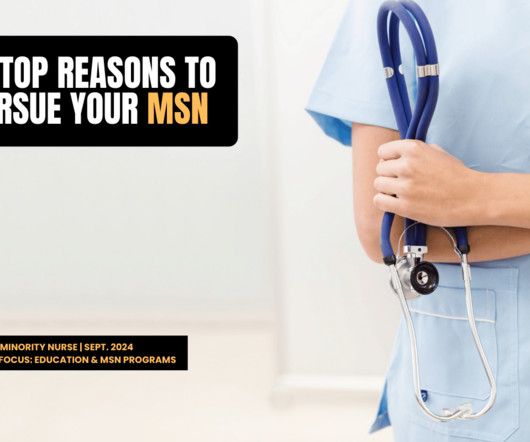Levels of Nursing Explained
University of St. Augustine for Health Sciences
JUNE 9, 2025
Becoming an APRN often requires further education, such as a Master of Science in Nursing (MSN). Types of APRNs include nurse practitioners, nurse anesthetists, nurse midwives and clinical nurse specialists. The BSN-entry nursing student will have a longer plan of study.












Let's personalize your content